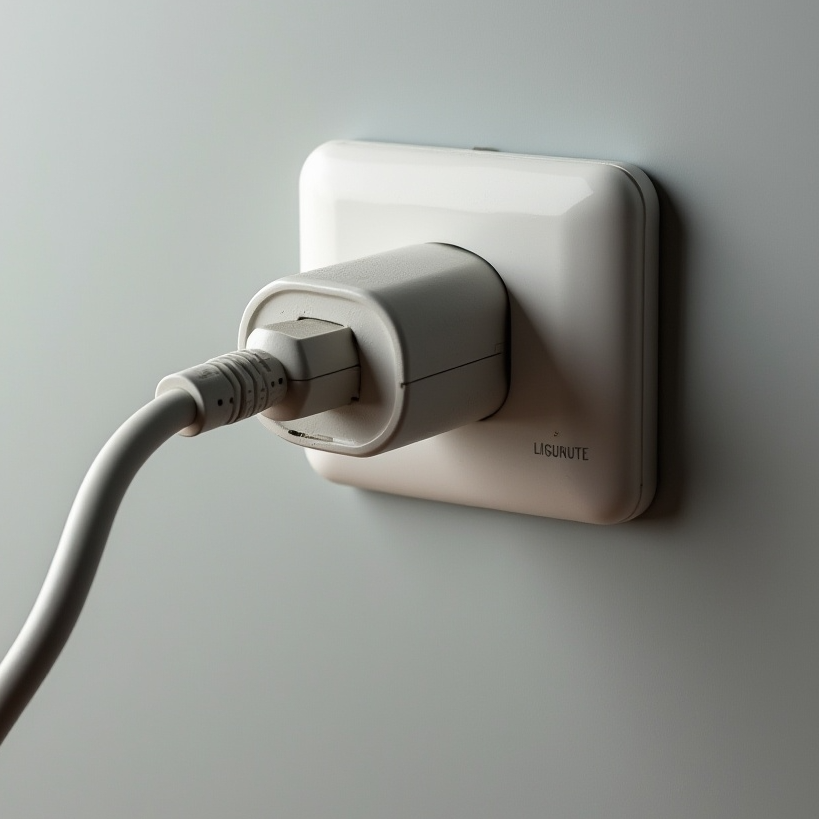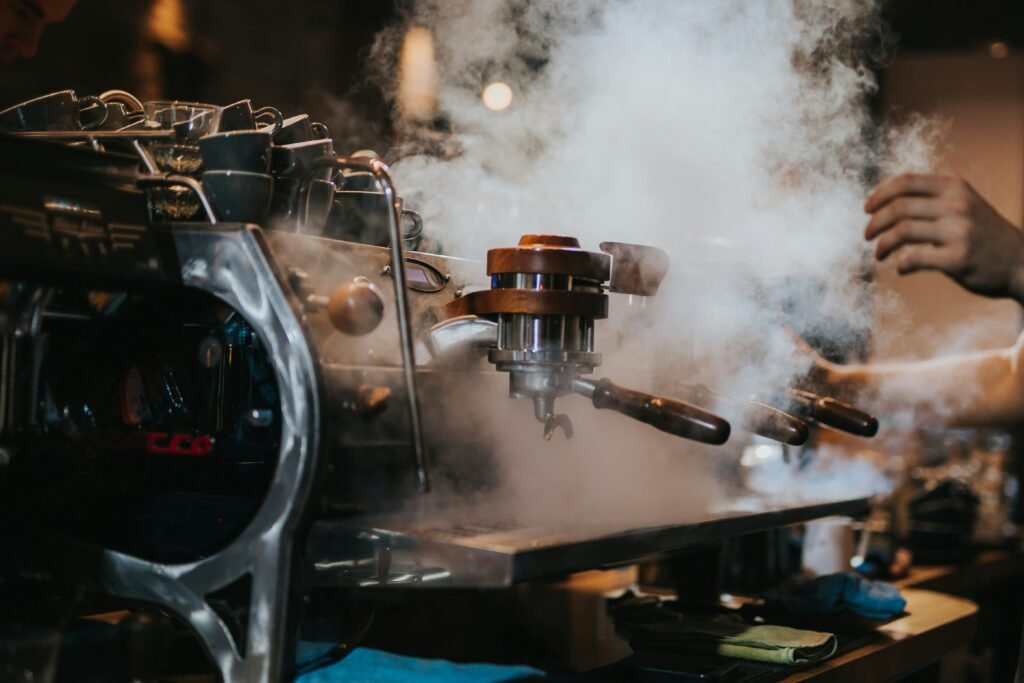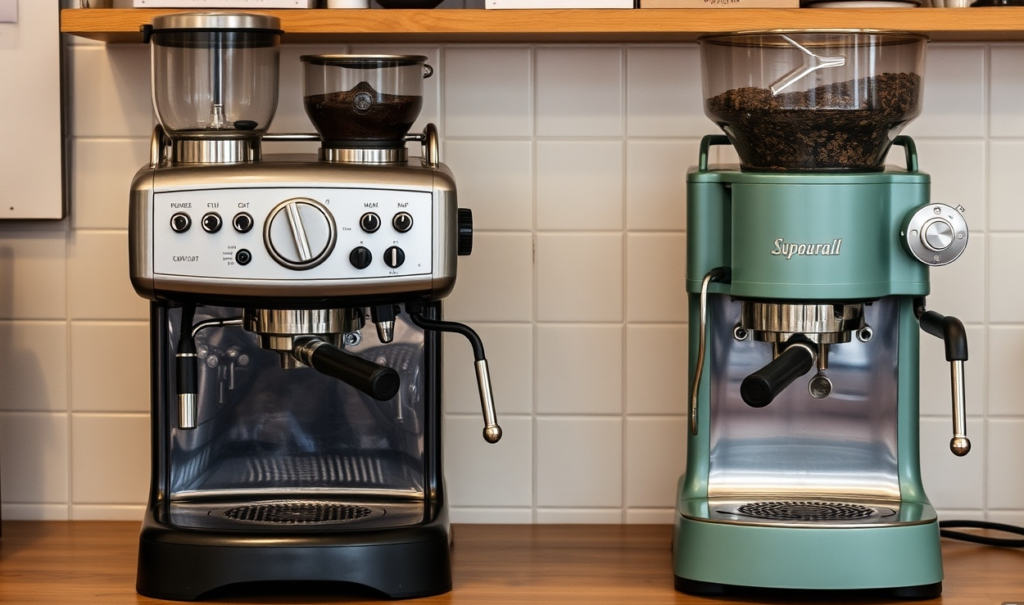Is your coffee machine spluttering, slow, or just plain refusing to brew? This morning frustration can ruin your day. I'll help you figure out what's wrong.
Your coffee machine may not be brewing properly due to simple issues like a clogged water line, incorrect grind size, or a problem with the heating element. Sometimes, it's just a need for descaling. Businesses like Muhammad's need machines that work reliably.

Now that we've touched on some common reasons, you're probably wondering how to pinpoint the exact cause for your machine. It's true that a few different things can stop a coffee machine from working its best. As a manufacturer supplying premium coffee accessories worldwide, from the UAE to the European Union, I've learned that understanding these basic issues is key. Let's explore some specific situations to help you get back to brewing great coffee.
Why is my coffee machine not working properly at all?
Machine dead, no lights, no sound? This complete failure is worrying. It leaves you without coffee and wondering about repair costs. Let's diagnose this.
If your coffee machine isn't working at all, first check the power supply, outlet, and plug. It could also be an internal fuse or a major component failure. For commercial buyers, consistent operation is vital.

When I talk to B2B clients like Muhammad, whose business relies on dependable equipment[^1], a machine that's completely dead is a major concern. They need solutions, fast. From my experience at SIF Coffee Tools, building robust products with quality components is crucial to minimize these issues. We ensure our coffee accessories, from portafilters to shower screens, are made to last, meeting FDA and LFGB standards.
Basic Power Checks First
Before assuming the worst, let's start with the basics. Is the machine plugged in securely? Try a different power outlet to rule out an issue with the socket. Check the power cord for any visible damage. It sounds simple, but these are often overlooked. In a busy café or hotel setting, staff might accidentally dislodge a plug.
Internal Fuses and Safety Switches
Many coffee machines have an internal fuse[^2]. This fuse protects the machine from power surges. If it blows, the machine won't turn on. Some machines also have safety switches, for example, a switch that checks if the water tank is properly in place. If these are not activated correctly, the machine might not start. For our OEM/ODM clients, we discuss these safety features to ensure they meet their market's needs.
Considering Major Component Failure
If the simple checks don't work, it could be a more serious internal problem. This might involve the main circuit board or the power supply unit within the machine. In such cases, professional repair is usually needed. For commercial machines, particularly those supplied to demanding markets like Dubai, rapid service and parts availability are key – something we consider when discussing partnerships with distributors. Having a reliable supplier who understands these needs makes a big difference.
| Potential Issue | Checks to Perform | Why It Matters for B2B Operations |
|---|---|---|
| No Power | Plug, outlet, power cord integrity | Basic operational readiness |
| Blown Internal Fuse | Requires checking internal fuse | Machine protection, requires replacement |
| Faulty Safety Switch | Ensure all parts (water tank, drip tray) are correctly seated | Prevents operation if not set |
| Major Component Failure | Professional diagnosis (circuit board, power unit) | Downtime, potential replacement cost |
Why is my coffee machine turning on but not brewing?
Machine lights up, maybe even hums, but no coffee comes out? This is confusing. You know it has power, but the brewing process fails. Let's find the blockage.
If your machine turns on but doesn't brew, it's often due to an empty water tank, a blockage in the water lines, a faulty pump, or a clogged filter basket. Ensure water can flow freely.

This specific problem – power on, no brew – is one I often discuss with clients who purchase our wholesale coffee accessories. They need their customers' machines to be reliable. A simple blockage can halt operations, which is why components like our precision-engineered coffee baskets and stainless steel shower screens are designed to minimize such issues.
Check the Water Source: Is It Obvious?
It might seem too simple, but first, check the water reservoir. Is it empty or not seated correctly? Some machines won't start the brew cycle if the water level is too low or if the tank isn't making proper contact. I’ve seen even experienced users miss this in a rush. For our B2B clients, ensuring intuitive design in components that interact with water is important.
Blockages: The Hidden Culprit
A common reason is a blockage. This could be limescale buildup in the pipes or heating element, especially in areas with hard water. Coffee grounds can also cause clogs, particularly if the grind is too fine or the machine isn't cleaned regularly. Our precision filter baskets are designed with hole consistency to reduce this, but regular maintenance is always key. Muhammad, placing orders for the UAE market, would value components that are easy to clean and maintain due to water quality concerns in some areas.
Pump or Heating Element Issues
If water is present and lines seem clear, the problem might be with the pump or the heating element. The pump draws water from the reservoir and pushes it through the coffee. If it's faulty, you might hear a different sound than usual, or no sound at all. The heating element needs to get the water to the right temperature. If it fails, the machine might wait indefinitely or try to dispense cold water. Our experience in manufacturing with strict quality control helps us produce durable components, but all parts have a lifespan.
| Symptom: On but No Brew | Potential Cause | Suggested Action | SIF Coffee Tools Relevance (B2B) |
|---|---|---|---|
| Machine hums, no water | Empty/misaligned water tank | Refill/reseat tank | User-friendly design for easy operation |
| Slow Drip / No Flow | Water line/Basked Clog (scale/grounds) | Descale machine, clean brew head/basket | Precision baskets to minimize clogging |
| No sound from pump | Faulty pump | Professional repair/replacement needed | Supplying reliable parts for machine manufacturers |
| Water is cold | Faulty heating element | Professional repair/replacement needed | High-quality components for thermal stability |
What is the lifespan of a coffee machine?
Worried your coffee machine is nearing its end? Knowing its typical lifespan manages expectations. It also helps you budget for repairs or a new one. So, how long should it last?
A coffee machine's lifespan varies greatly, from 5 to 15 years. It depends on build quality, brand, usage frequency, and how well it's maintained. Regular descaling and cleaning help a lot.

As a manufacturer of premium coffee accessories, we often discuss durability with our B2B clients, like distributors in Europe or equipment suppliers in Iran. They need products that offer good value and longevity. Muhammad, who looks for premium quality and reliable delivery, would also factor in the expected lifespan of the machines his tools will service.
Factors That Decide How Long It Lasts
Several things affect a coffee machine's life.
- Build Quality and Materials[^3]: Machines made with higher-quality components, like stainless steel internal parts instead of plastic, generally last longer. This is a core principle for SIF Coffee Tools; our baskets and shower screens are made from durable stainless steel.
- Usage Frequency: A machine used multiple times a day in a commercial setting will wear out faster than one used once a day at home.
- Maintenance[^4]: Regular cleaning and descaling are crucial. Limescale buildup is a major enemy of coffee machines, causing blockages and stressing components.
- Machine Type: A simple drip coffee maker might have a different lifespan than a complex espresso machine with many moving parts.
How Maintenance Can Extend Lifespan
I always tell my clients that maintenance is key. Regular descaling, as per the manufacturer's instructions, prevents damage to the heating element and pump. Cleaning the brew group, portafilters, and filter baskets (we supply these with competitive MOQs) removes coffee oils and fine grounds that can cause blockages and put strain on the machine. Using filtered water can also reduce mineral buildup significantly.
When Should You Think About Replacing It?
Deciding when to replace a machine depends on a few things. If repair costs are more than half the price of a new machine, replacement is often better. Frequent breakdowns, even if minor, also suggest it’s time. If the machine no longer brews coffee to your taste despite maintenance, new technology might offer a better experience. For our target clients—established distributors and manufacturers—providing reliable, long-lasting accessories ensures their final products also have an extended, trouble-free life. Our 80 advanced punching machines and 5 assembly lines are geared towards this consistent quality.
| Influencing Factor | Impact on Lifespan | Advice for Longevity |
|---|---|---|
| Build Quality/Materials | Higher quality = longer life. | Choose machines with good reviews for durability. |
| Usage Intensity | Higher use = shorter lifespan (usually). | Select commercial-grade for heavy use. |
| Maintenance Routine | Consistent cleaning/descaling = significantly longer life. | Follow manufacturer's cleaning and descaling schedule. |
| Water Quality | Hard water = more scale = shorter life if not managed. | Use filtered water; descale more often with hard water. |
Conclusion
Fixing coffee machine issues often starts with simple checks like power, water, and cleaning. Knowing these can save you time and ensure many more great cups of coffee.
---
[^1]: Explore this resource to understand how to maintain and ensure the reliability of equipment in B2B settings, crucial for operational success.
[^2]: Learn about the role of internal fuses in coffee machines to prevent damage and ensure longevity, essential for any café owner.
[^3]: Explore this link to understand how build quality impacts the longevity of coffee machines, ensuring you choose the best for your needs.
[^4]: Discover essential maintenance tips that can significantly extend the life of your coffee machines, ensuring better performance and value.



